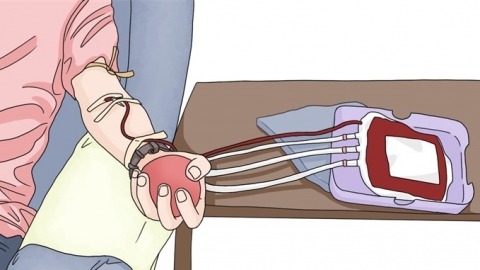What indicators are checked during blood donation?
The health examination before blood donation aims to ensure the safety and effectiveness of blood. It generally includes blood type identification, routine blood test, screening for infectious diseases, transaminase testing, and hemoglobin testing. Detailed explanations are as follows:

1. Blood Type Identification: The donor's blood type is determined through antigen-antibody reactions, which is the foundation of blood transfusion therapy. Standard antiserum is mixed with the donor's red blood cells, and agglutination is observed to accurately determine the blood type category, ensuring the recipient receives compatible blood and preventing severe adverse reactions such as hemolysis.
2. Routine Blood Test: This involves quantitative analysis of various blood cell components, including the number and morphology of red blood cells, white blood cells, and platelets. This test can detect abnormalities such as anemia, infections, or hematologic disorders, preventing the transfusion of unsuitable blood into recipients and ensuring transfusion safety.
3. Screening for Infectious Diseases: Testing is conducted for pathogens such as Human Immunodeficiency Virus (HIV), Hepatitis B Virus (HBV), Hepatitis C Virus (HCV), and Treponema pallidum (syphilis). This screening prevents the transmission of infectious diseases through blood, protecting the health of recipients and ensuring the safe use of blood products.
4. Transaminase Testing: Transaminases are present in liver cells, and their levels in the blood reflect the functional status of the liver. Abnormal test results indicate possible liver damage, such as hepatitis or drug-induced liver injury. Blood collected during such conditions is unsuitable for donation to avoid affecting the liver health of the recipient.
5. Hemoglobin Testing: Hemoglobin is a key component in red blood cells responsible for oxygen transport, and its concentration directly affects the blood's oxygen-carrying capacity. By measuring hemoglobin levels, the suitability of the donor is assessed to ensure the donated blood has good oxygen-carrying function and therapeutic effectiveness.
Comprehensive and rigorous pre-donation testing is a crucial measure to protect both the donor's health and the recipient's safety. If you plan to participate in blood donation, it is important to understand these examination items in advance, ensure adequate sleep, maintain a light diet, avoid alcohol consumption and medication, and participate in blood donation activities with a good physical condition.




